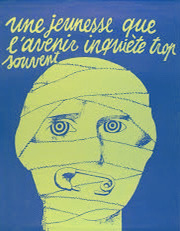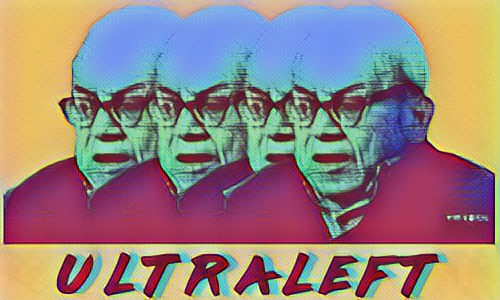Situationist Social Movements
Autonomism, Situationism, Associationalism
Autonomism is a set of anti-authoritarian left-wing political and social movements and theories. As a theoretical system, it first emerged in Italy in the 1960s from workerist communism. Later, post-Marxist and anarchist tendencies became significant after influence from the Situationists.
The forms of autonomous movements saying that "In contrast to the centralized decisions and hierarchical authority structures of modern institutions, autonomous social movements involve people directly in decisions affecting their everyday lives. They seek to expand democracy and to help individuals break free of political structures and behavior patterns imposed from the outside".
Autonomy, in this sense, is not independence. While independence refers to an autarchic kind of life, separated from the community, autonomy refers to life in society but by one's own rule. Situationists advocate organizational self-management and workers' self-management as a form of organizational management based on self-directed work processes on the part of an organization's workforce.
An economic system consisting of self-managed enterprises is sometimes referred to as a participatory economy, self-managed economy, or cooperative economy. This economic model is a major version of market socialism and decentralized planned economy, stemming from the notion that people should be able to participate in making the decisions that affect their well-being.
In the economic theory of self-management, workers are no longer employees but partners in the administration of their enterprise. Management theories in favor of greater self-management and self-directed activity cite the importance of autonomy for productivity in the firm and economists in favor of self-management argue that cooperatives are more efficient than centrally-managed firms.
As such, a decentralized-planned economy or occasionally called horizontally-planned economy is a type of planned economy in which the investment and allocation of consumer and capital goods is explicated accordingly to an economy-wide plan built and operatively coordinated through a distributed network of disparate economic agents or even production units itself. Decentralized planning is usually held in contrast to centralized planning, in particular the Soviet Union's command economy, where economic information is aggregated and used to formulate a plan for production, investment and resource allocation by a single central authority. Decentralized planning can take shape both in the context of a mixed economy as well as in a post-capitalist economic system.
This form of economic planning implies some process of democratic and participatory decision-making within the economy and within firms itself in the form of industrial democracy. Computer-based forms of democratic economic planning and coordination between economic enterprises have also been proposed by various computer scientists and radical economists. Proponents present decentralized and participatory economic planning as an alternative to market socialism for a post-capitalist society. Decentralized-planning has been proposed as a basis for socialism and has been variously advocated by democratic socialists, council communists and anarchists who advocate a non-market form of socialism, in total rejection of Soviet-type central economic planning.
The Situationists inspired the French student revolt of May 1968 which led to associationalism or associative democracy as a political movement in which "human welfare and liberty are both best served when as many of the affairs of a society as possible are managed by voluntary and democratically self-governing associations." Associationalism "gives priority to freedom in its scale of values, but it contends that such freedom can only be pursued effectively if individuals join with their fellows"
Associational democracy is, in essence, both a political structure and system of relations with the goal of easing pluralist social negotiation and priorities. It became an important aspect of public policy, countering previous laissez-faire traditions. Critics considered laissez-faire, which essentially equated to liberal individualism, as not conducive to the fostering of upward mobility in society. Associationalism, as opposed to liberal individualism, embodies a deliberate commitment to social cooperation as well as public well-being.
Associationalism brought together several political ideologies which, until its conception, were frequently at odds: pluralism, socialism, and cooperative mutualism. It provides for a pluralist rather than a statist or constraining collectivist socialism, yet it also provides for a mutualist and cooperative pluralism. This, as opposed to pluralism which reacts so far to statist communitarianism that it slides into an unrestricted competitive asociality.
Parallel to the associationalists, the Situationist International was an international organization of social revolutionaries made up of avant-garde artists, intellectuals, and political theorists, prominent in Europe from its formation in 1957 to its dissolution in 1972. The intellectual foundations of the Situationist International were derived primarily from anti-authoritarian Marxism and avant-garde art movements of the early 20th century, particularly Dada and Surrealism.
When the Situationist International was first formed, it had a predominantly artistic focus; emphasis was placed on concepts like unitary urbanism and psychogeography. Gradually, however, that focus shifted more towards revolutionary and political theory. The Situationist International reached the apex of its creative output and influence in 1967 and 1968, with the former marking the publication of the two most significant texts of the situationist movement, The Society of the Spectacle by Guy Debord and The Revolution of Everyday Life by Raoul Vaneigem. The expressed writing and political theory of the two aforementioned texts, along with other situationist publications, proved greatly influential in shaping the ideas behind the May 1968 insurrections in France; quotes, phrases, and slogans from situationist texts and publications were ubiquitous on posters and graffiti throughout France during the uprisings.
Situationist theorists advocated methods of operation that included democratic workers' councils and workers' self-management, interested in empowering the individual, in contrast to the perceived corrupt bureaucratic states of the Eastern bloc. Their anti-authoritarian interpretation of Marxist theory can be identified with the broader council communist and libertarian Marxist movements.
The Situationist also developed psychogeography as an exploration of urban environments that emphasizes playfulness and "drifting". It has links to the Situationist Internationals, revolutionary groups influenced by Marxist and anarchist theory, as well as by the attitudes and methods of Dadaists and Surrealists. Psychogeography was defined in 1955 by Guy Debord as "the study of the precise laws and specific effects of the geographical environment, consciously organized or not, on the emotions and behavior of individuals." It has also been defined as "a total dissolution of boundaries between art and life". Another definition is "a whole toy box full of playful, inventive strategies for exploring cities... just about anything that takes pedestrians off their predictable paths and jolts them into a new awareness of the urban landscape.”
Ultimately, the Situationists and like minded social movements developed a theory of radical democracy. Inspired by the tradition of worker self management, it advocates for a horizontal egalitarian model of democratization: the self organization of society.
Ultimately, the Situationists and like minded social movements developed a theory of radical democracy. Inspired by the tradition of worker self management, it advocates for a horizontal egalitarian model of democratization: the self organization of society.




Comments
Post a Comment